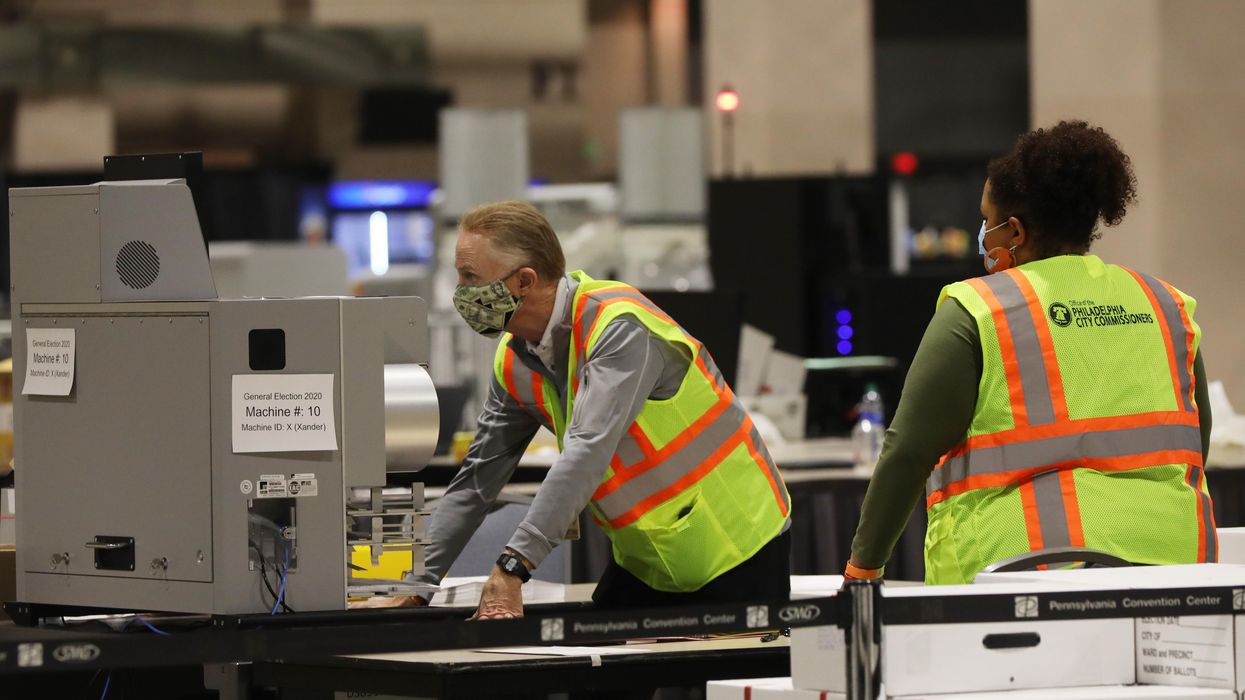The fiscal 2023 budget plan President Biden released Monday would allocate billions of dollars in election security grants and nearly double the budget for the Election Assistance Commission, which administers such grants.
White House budget proposals do not define future spending but rather serve as a reflection of the administration’s values. With election reform bills stalled in Congress, Biden is now pushing to invest in election administration and security through the agency designed to provide resources to the states.
The EAC, which was created in 2002 under the Help America Vote Act, provides voluntary guidance to states on how to follow the limited election administration requirements established by federal law. It also certifies election equipment and administers election-related grants.
Biden’s budget calls for $10 billion in election security grants, to be allocated over a 10-year period “to support critical state and local election infrastructure.”
The money can be spent on HAVA-related programs “such as upgrades to registration databases, voting systems, and physical structures; support recruitment, training, and retention of election workers; improve physical and cyber security; and improve voters' access to reliable elections.”
In early December, conservative think tanks wrote to congressional leaders requesting significant investment in election security at the state and local levels. And later that month, 14 state election officials called on the administration to spend $20 billion over 10 years for election equipment, training, security and facilities.
The Center for Tech and Civic Life had echoed that funding request, and while its leaders still believe more is needed, they celebrated Biden’s proposal.
“Our recent polling shows bipartisan support for federal funding for local election officials. President Biden is showing leadership and making the case that we must invest in state and local election departments. He’s right and Congress should follow suit,” said Tiana Epps-Johnson, executive director of CTCL.
Congress has appropriated funds for HAVA spending three times previously: $380 million in 2018 and $425 million in 2020, but just $75 million this year.
In addition, the Biden budget would establish $250 million in election innovation grants. State and local governments would compete for the money, to be spent on projects that improve the administration of federal elections.
“Eligible uses of funding will include capital investment to accelerate modernization of secure voting systems, efforts to expand voter access, including vote-by-mail, voter education, language proficiency, usability, voter technology, and other initiatives to enhance and secure administration of Federal elections that do not meaningfully impair access,” according to the budget proposal.
Biden proposed nearly doubling the EAC budget, from $16 million to $30 million. That includes increased compensation for full-time personnel from $5 million to $8 million.
Election administration and security have been major issues at the heart of the ongoing politicization of the 2020 election. Republicans continue to claim Donald Trump was robbed of a second term by people committing election crimes (even though there is no evidence of widespread fraud) and Democrats argue that GOP legislators are attempting to stifle voting rights of minority voters heading into the 2022 midterm elections.
The president is also asking Congress to provide a 15 percent increase for the Federal Election Commission. While the FEC is responsible for enforcing federal election laws (among other tasks), it rarely takes action thanks to the polarization among its commissioners.
The White House, through its agencies, spends hundreds of millions of dollars annually to promote and defend democracy abroad. Biden has requested keeping those expenditure lines — the Democracy Fund ($290 million) and the National Endowment for Democracy ($300 million) — flat next year.
A bipartisan bill has been proposed in the House of Representatives to establish similar funding for grants to improve democracy at home. The Building Civic Bridges Act would task AmeriCorps with administering grants to increase civic engagement and decrease polarization.




















